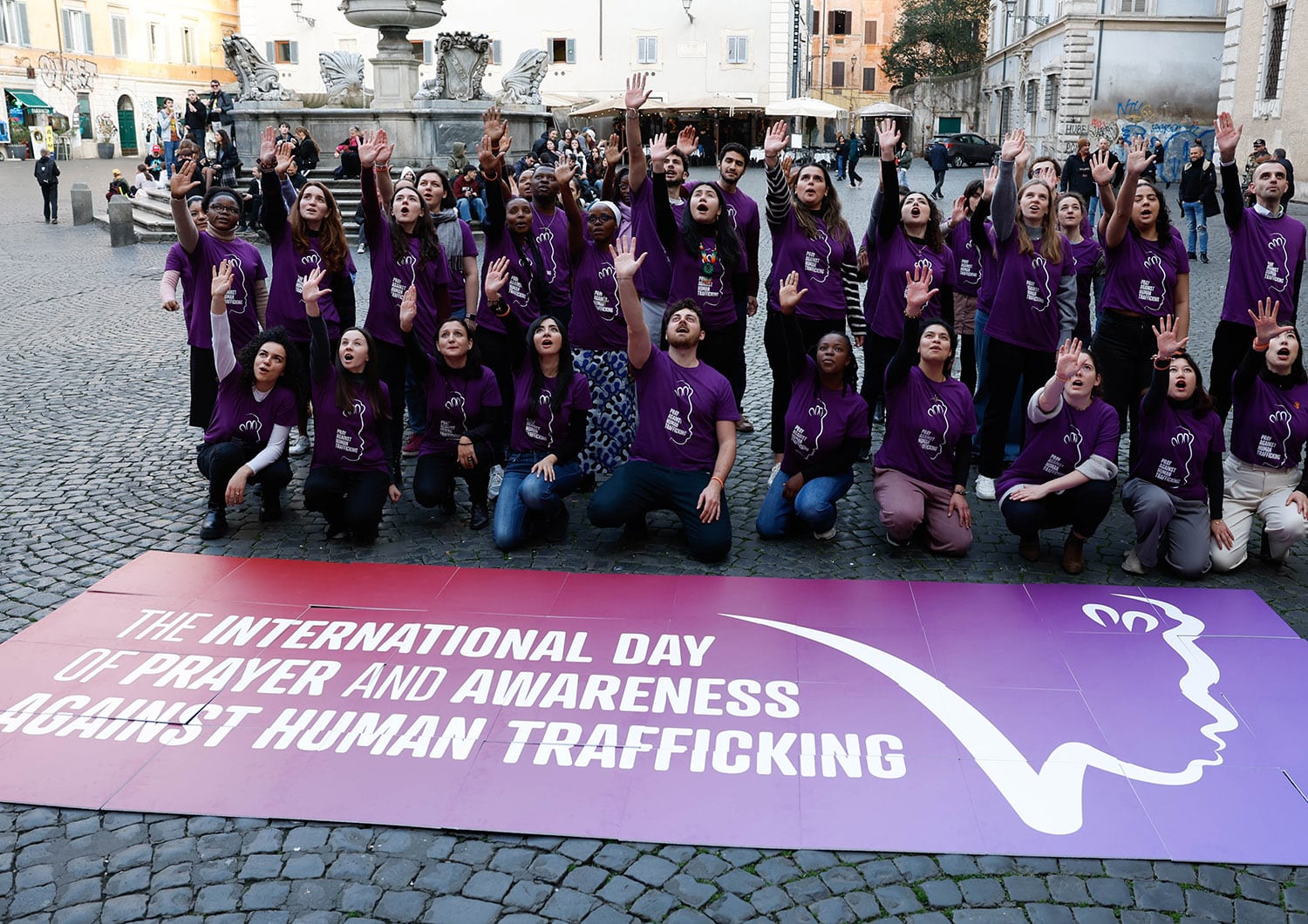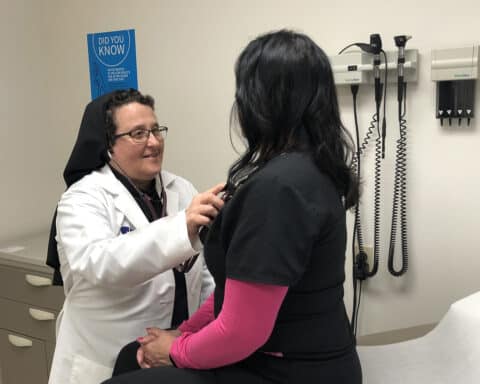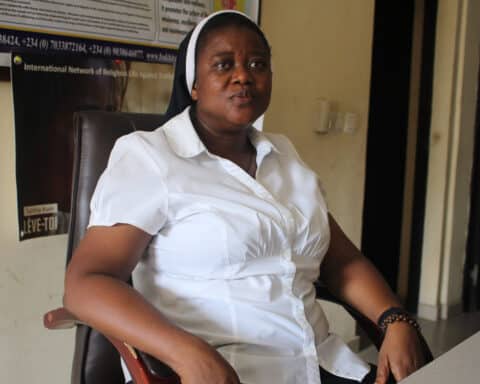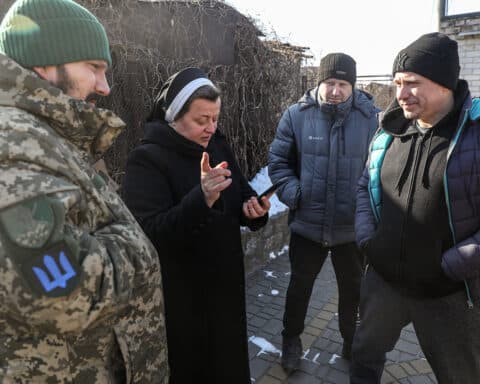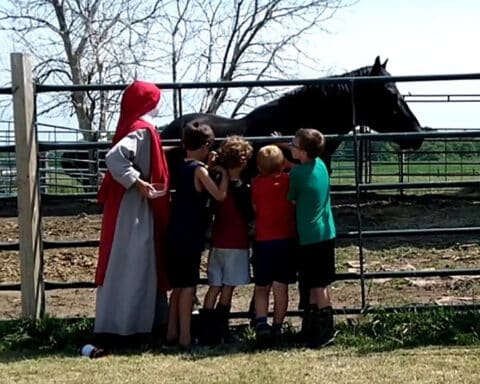ROME (CNS) — The world’s religious sisters have paved the way in their pioneering fight against human trafficking, said a survivor and activist.
Now today’s young people “are walking the way,” following in the sisters’ footsteps to raise awareness, assist victims and promote solutions, Daniela Alba, a staff member of Jesuit Refugee Service, told Catholic News Service Feb. 6.
Alba and about 40 other young people were in Rome’s central Santa Maria in Trastevere Square filming a promotional video “flash-mob” style with music, clapping and holding aloft handmade signs with words like, “Freedom,” “Hope,” “Stand together,” “Dignity” and “Respect” in different languages.
Other volunteers took advantage of the small crowds to distribute bookmarks illustrating International Day of Prayer and Awareness Against Human Trafficking, held every Feb. 8, the feast of St. Josephine Bakhita, a Sudanese religious sister who was enslaved as a child.
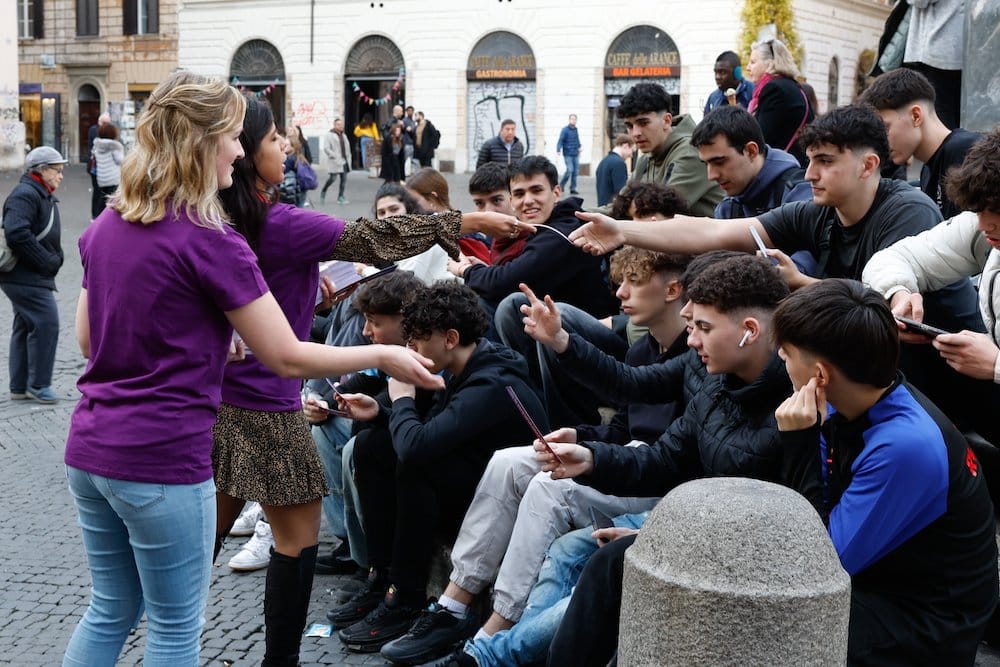
Raising awareness through social media
The young students, volunteers, researchers, communicators and activists working against trafficking also represented organizations that partner with Talitha Kum, a global network begun by women religious in the 1990s to assist victims and fight trafficking.
“The nuns laid the bricks down, paved the way, and now we are walking this way,” said Alba, who is a survivor of gender-based violence, fleeing at a young age from Bogota, Colombia, with her mother to the United States. Alba lived in more than 10 different U.S. cities, graduated from college and worked with undocumented people in New York City.
“People think these things happen in silos, but forced migration drives human trafficking,” she said.
Trafficking is also driven by greed, she said, referring to the fact that traffickers, who take advantage of people’s vulnerabilities to force or trick them into slave-like working conditions, are answering a demand for cheap labor. “The fear of survival” is a natural instinct, yet greed perverts that into thinking, “I need more and nothing is ever enough.”
Mary Mugo, from Nairobi, is a “youth ambassador” in Kenya through her training with Talitha Kum.
She told CNS she felt the need to do more as a young person to fight trafficking because young people are affected by this crime and need to be made aware.
“Social media has lots of potential to be used in raising awareness,” she said. For example, in Kenya they might use a popular dance on TikTok to share a message about trafficking.
Many people don’t understand how widespread and insidious trafficking is, she said.
“People should listen and observe more” to see trafficking at work in their communities, she said.
One warning sign is if a person seems too isolated or quiet since traffickers often threaten their victims not to talk to anyone, she said. For example, “if at a restaurant, there is a man or a woman ordering for another person who doesn’t say anything.”
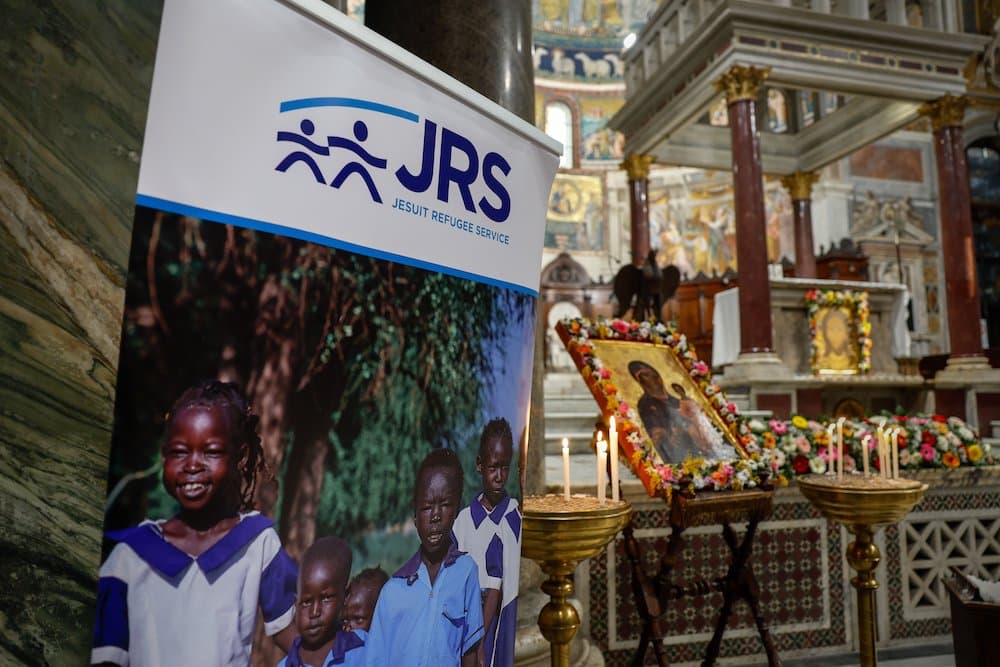
How you can help
If people suspect an individual may be a victim of trafficking, they should call law enforcement or an organization part of the Talitha Kum network that can help identify cases of trafficking, she said.
Maryknoll Sister Abby Avelino, international coordinator of Talitha Kum, told CNS it was “very exciting” to have the young people from so many different countries take part in listening to other people’s experiences and then share their knowledge with others.
The international day Feb. 8 is meant to increase awareness, reflect on the violence and injustice people suffer and come up with concrete solutions, she said.
“We invite everyone to listen and observe attentively, to dream together with the young people of a better world and to act for change, starting from personal, community and institutional commitment to effectively counter the causes of trafficking and exploitation,” Sister Avelino said in a press release for the day of prayer.
Talitha Kum coordinated the Feb. 2-8 initiative in Rome with young people for further training and building awareness. They attended Pope Francis’ weekly general audience Feb. 7 and his Angelus address Feb. 4, during which he greeted them and encouraged everyone to join together “to counter the dramatic global phenomenon of human trafficking.”

